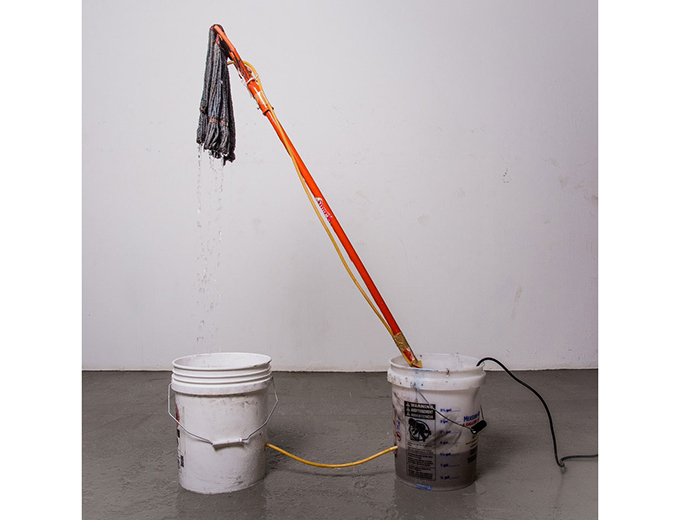Profiles
INTERSECTIONALITY IN THE STUDIO: Orlee Malka
Sometimes I think of intersectionality as bearing brokenness. Carrying it every day as being pieces. Being the other to a system that doesn’t work. The wrong kind of Jew, Arab, Queer, the one with a disability. I’m mostly a survivor of a system that gratifies pain. And by gratify I do not mean in any way that it’s worthwhile.
To me, the word bisexuality sounds like a kind of phenomena. This kind of queerness always felt like something seen as a pre-existing condition. However, we were always here in rooms of transition and letting love happen regardless of gender and beyond gender.
Being intersectional is to bear an archive of erasure, but I know something existed. I don’t come from nothingness. As someone who grew up with a complex ethnicity in Israel/Palestine, I always felt that I bear that erasure within the culture that I grew up in. So, from an early age I learned how to speak “their” language. I learned to disguise my inner dilemmas and my background, my nonvisible blackness, that of my father’s North African side. In order to survive I was required to comply and agree to cultural and spiritual erasure and to face a given assertion that ArabJews needed to be rehabilitated because we came from nothing. One of the names for the language spoken by us is Schluchit, which is spoken by the Amazigh/ Berber people of North Africa. In Israel/Palestine, Schluchit became a slur for a degenerate/ dirty person. It was when I was participating in different actions against the occupation of Palestine that I realized how much silencing was part of my life. I felt that I didn’t have the words to define what kind of Mizrahi (the Hebrew word for Eastern) I am. Another part of my ancestry has been living in Jerusalem, Palestine for more than two centuries. My history was told to me only within a context of passingon pieces. We had gone through deArabization, which meant that our loved ones stopped speaking their mother tongue (Arabic) and therefore this linguistic erasure performed shame. We live in space (both west and non-west) of what was left after colonialism. In a time where academic research often perpetuates a colonialist construct.
I surrender to language. I use mud and words as means. I think it’s a way to belong, or a making that is about belonging. I also know there is an inheritance to this, which includes me gifting this onwards to others beyond lifetimes. It’s a form of extended kinship, fearless family-making, so to speak. I pass on something from my moth-ers, fathers, friends, and allies. When I speak it, it becomes a part of me that was always there. I think of my piece, Self portrait with a Water Carrier (2018), which I made in New York, as a work of mourning to the unconsoled. I hold my body in a position of servitude, but also of strength and balance, especially while walking. It’s an offering to my grandmothers made of a language of connective tissue with water, mud and light.
Orlee Malka is an interdisciplinary artist living in New York City. Her conceptual and collaborative work considers the possibilities of art making within forms of collapse.



